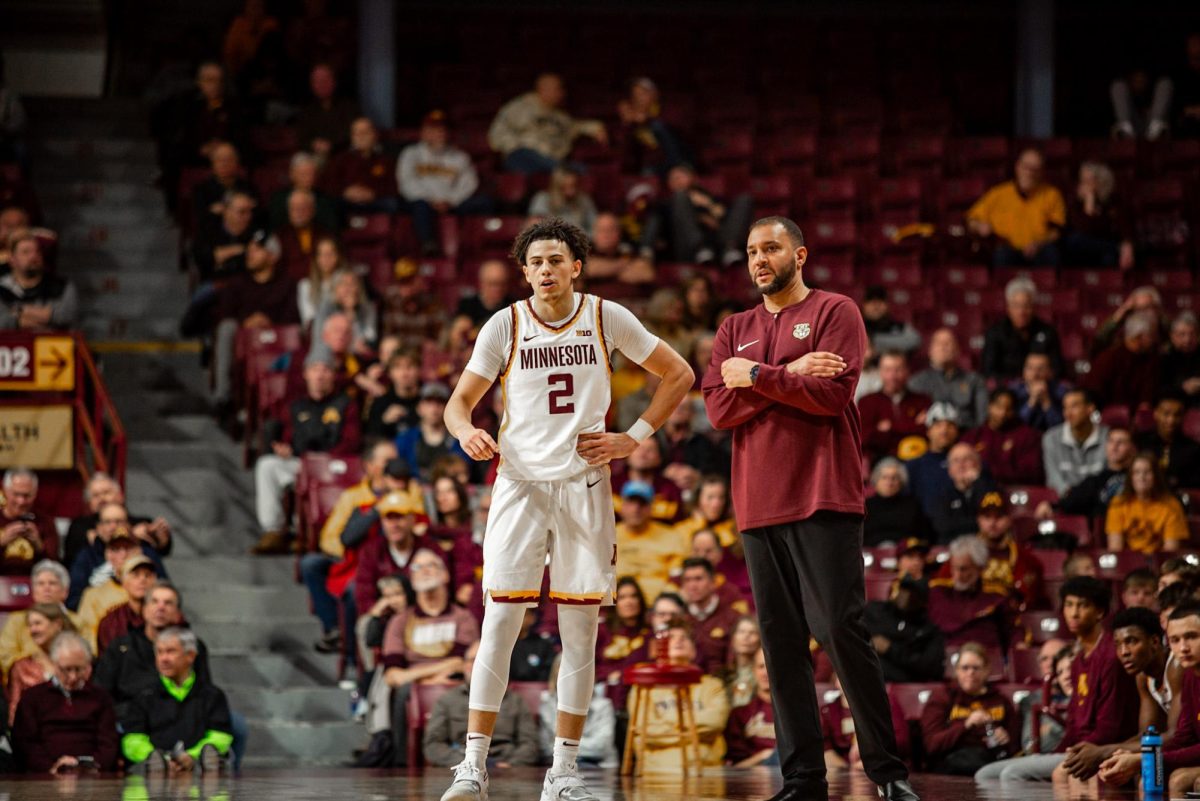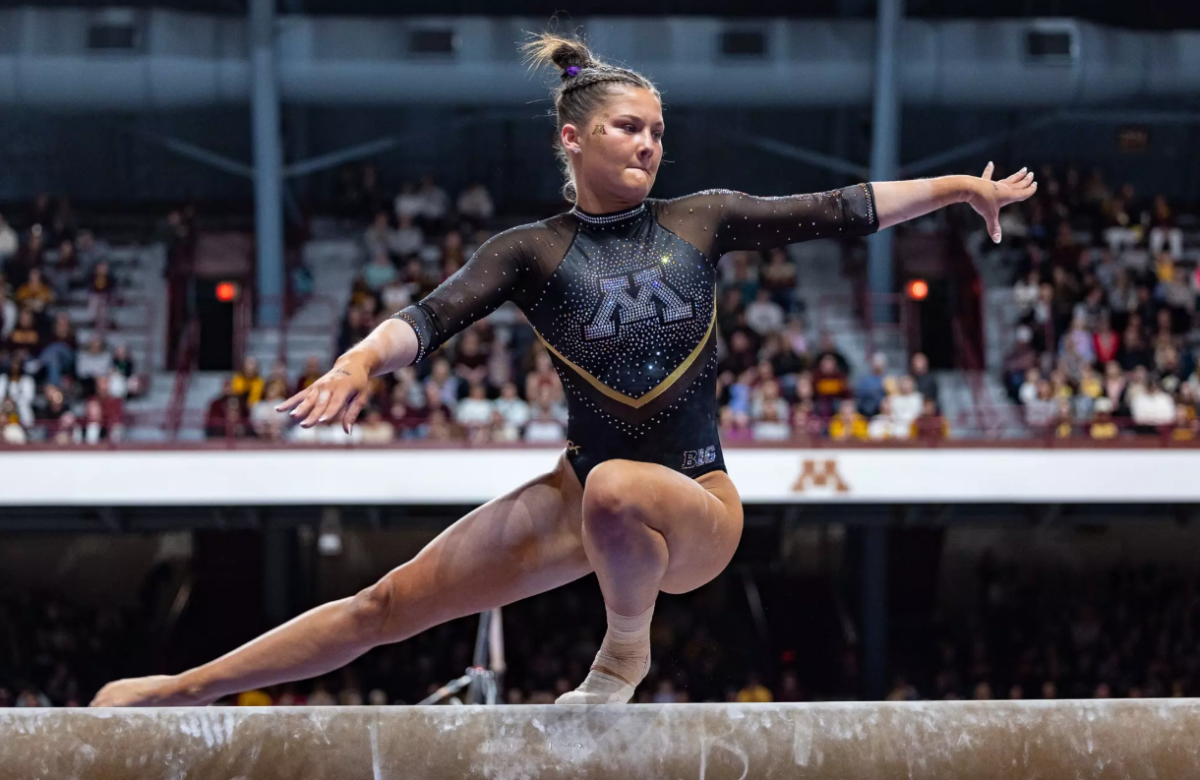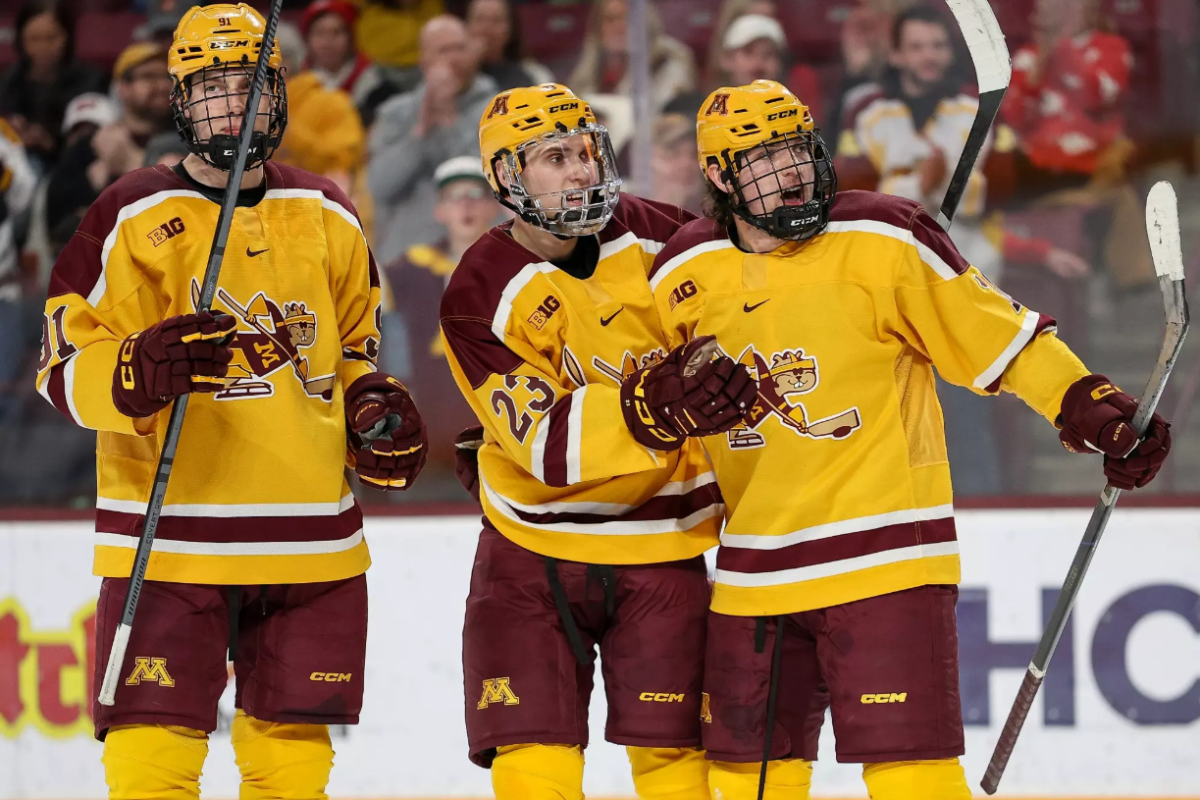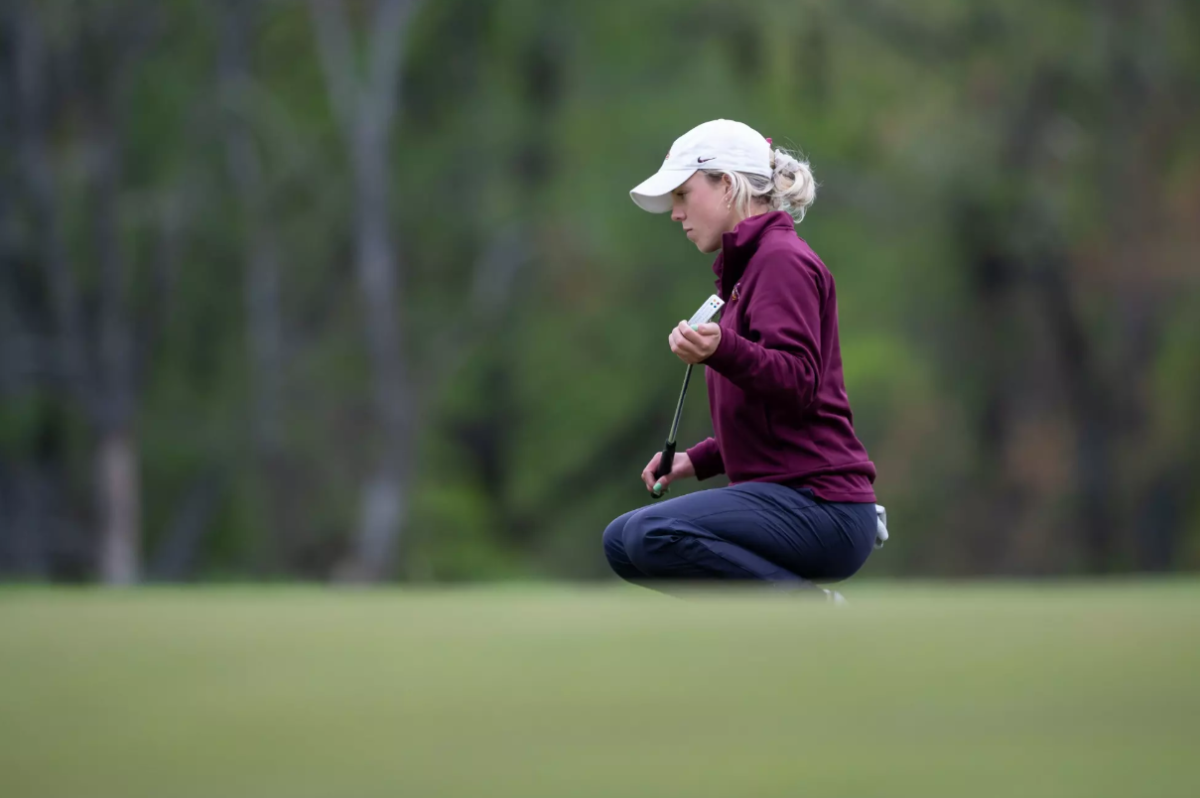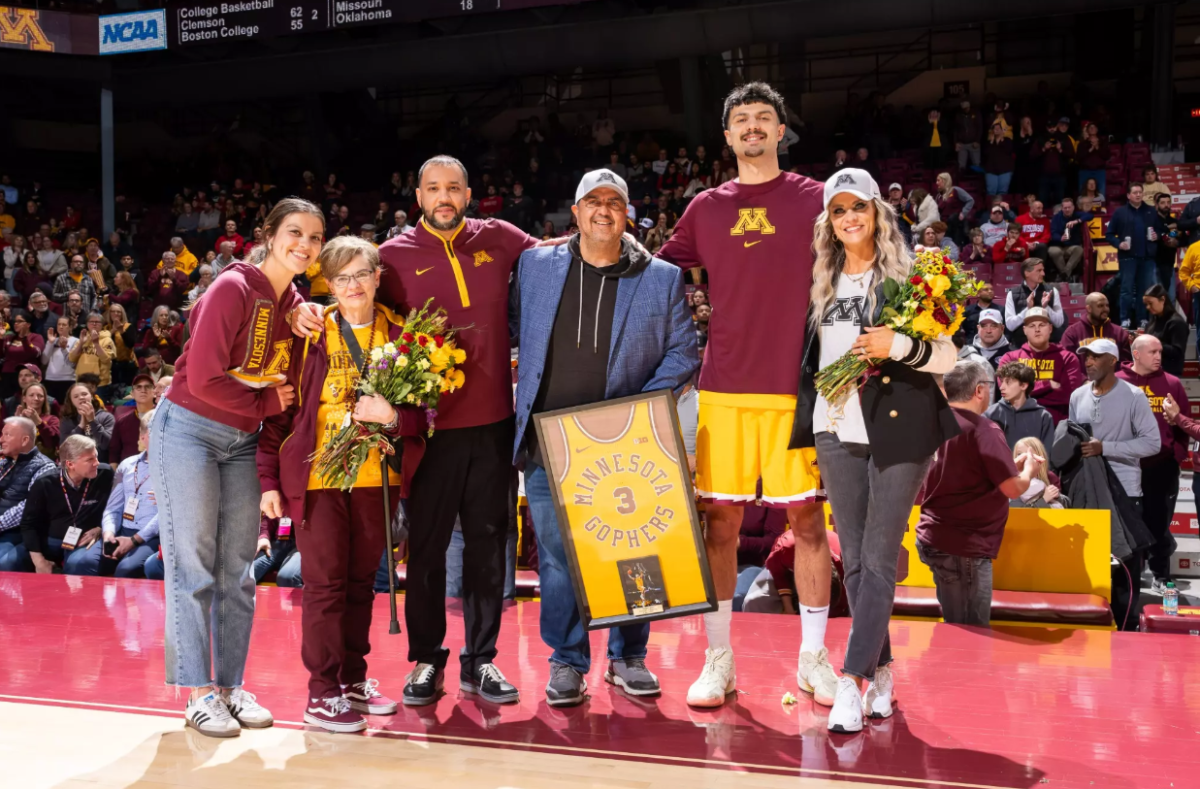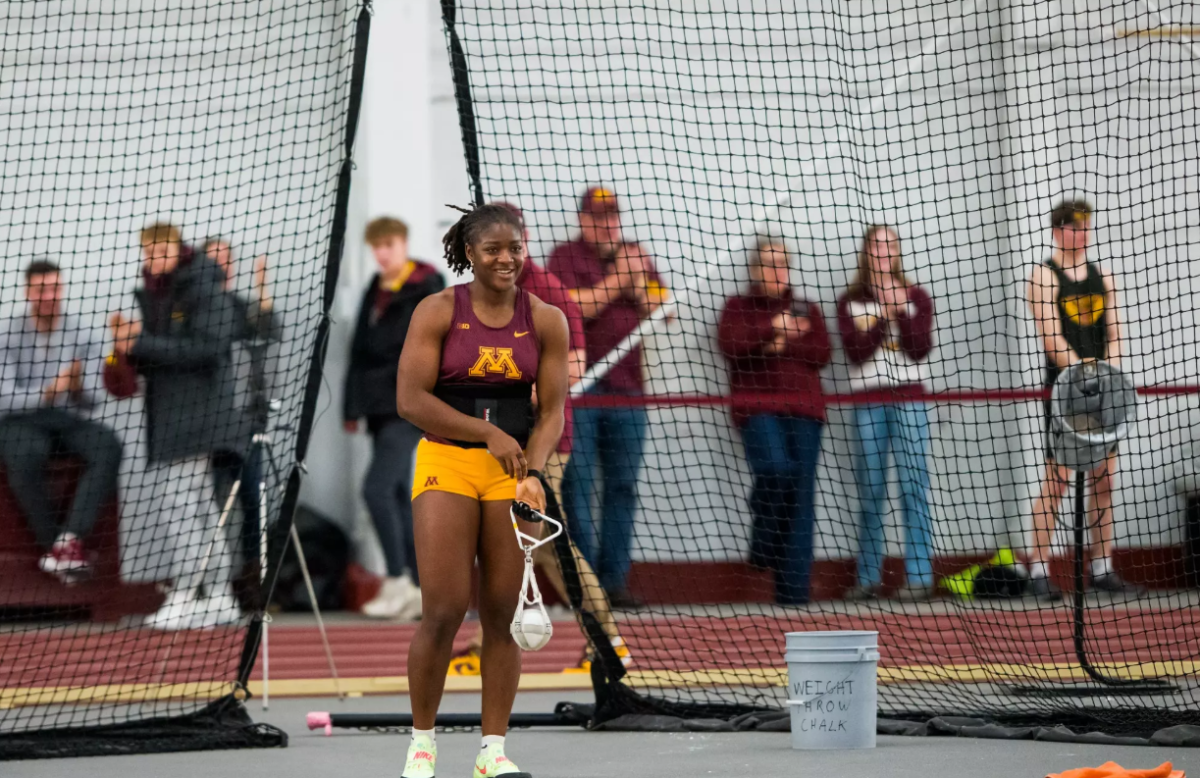Dozens of female coaches from across the state convened at TCF Bank Stadium on Friday to better understand how collegiate coaches and female athletes work together to address injuries.
At the event, which was sponsored by the Tucker Center, sport and exercise psychology associate professor Dr. Diane Wiese-Bjornstal presented her research, which explains how an athlete’s environment affects his or her likelihood of suffering injuries.
By observing past Gophers’ cross country rosters, she found high levels of stress usually follow injuries, and those situations can be amended if coaches play a positive role. Fewer injuries occur when a team’s culture is positive and open, according to the research, and when players are still involved in team activities despite being hurt.
Now, Wiese-Bjornstal aims to educate coaches to help them monitor injured student-athletes. And several Gophers head coaches already include facets of the associate kinesiology professor’s methods.
“The culture of sport that we have now, especially at the more elite levels, seems to overemphasize performance and underemphasize health,” she said. “To me, they’re equally important, so I would never be willing to sacrifice health for the sake of performance.”
By encouraging communication, planning physical and mental recovery processes and effectively reporting injuries, a team’s culture could change.
When an athlete is injured, it is important to his or her well-being to remain directly involved with the team, Wiese-Bjornstal said.
This practice is evident with Minnesota’s women’s hockey team. When team members are injured, head coach Brad Frost encourages them to participate in practice by either continuing to learn the game or helping out with drills.
At Friday’s event, Wiese-Bjornstal pushed the importance of creating a welcoming culture between players and coaches, and there’s room for teams across collegiate athletics to improve with making athletes feel comfortable.
“Coaches are so busy. It’s the X’s and O’s, the parents and so much more that they have to deal with,” she said. “They feel [handling an injury is] someone else’s job.”
Women’s tennis head coach Chuck Merzbacher said in recent years, his program has improved the communication between player, coach and trainer.
“The goal is to make everybody the best athlete they can be,” Merzbacher said. “But you have to put people’s health first.”
Unlike some other Minnesota teams where injured athletes play a heavy participatory role, in Merzbacher’s program, injured players solely focus on recovery.
“Injuries are a part of athletics. If you’re having an issue, you then have to become an active participant in the training room,” he said.
Frost also said his team is comfortable in communicating all sorts of issues to the coaching staff, including injuries.
“The only way our players can perform at their best is if they’re healthy,” he said.


